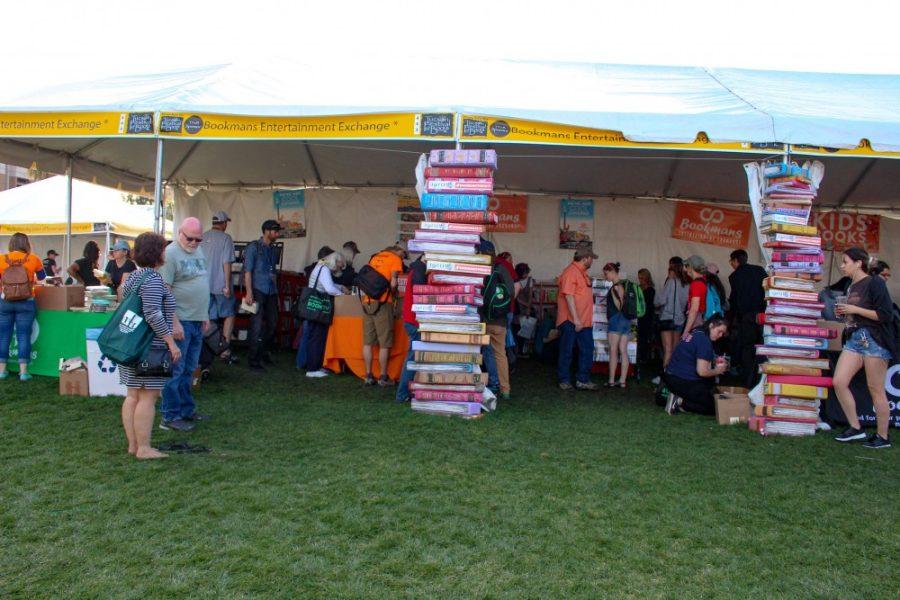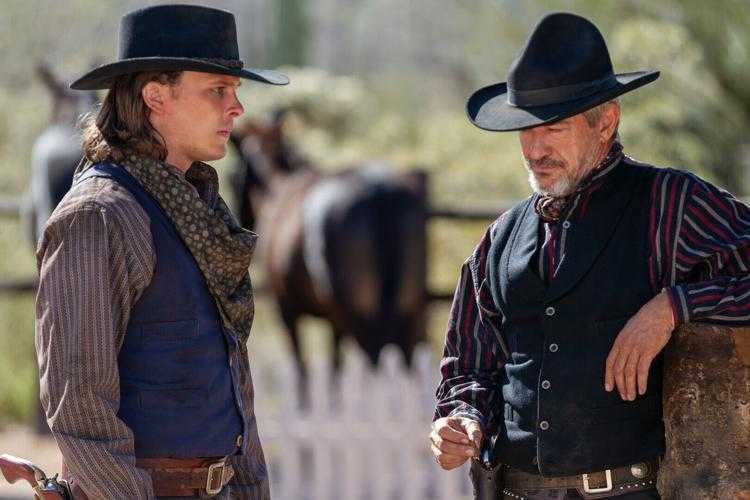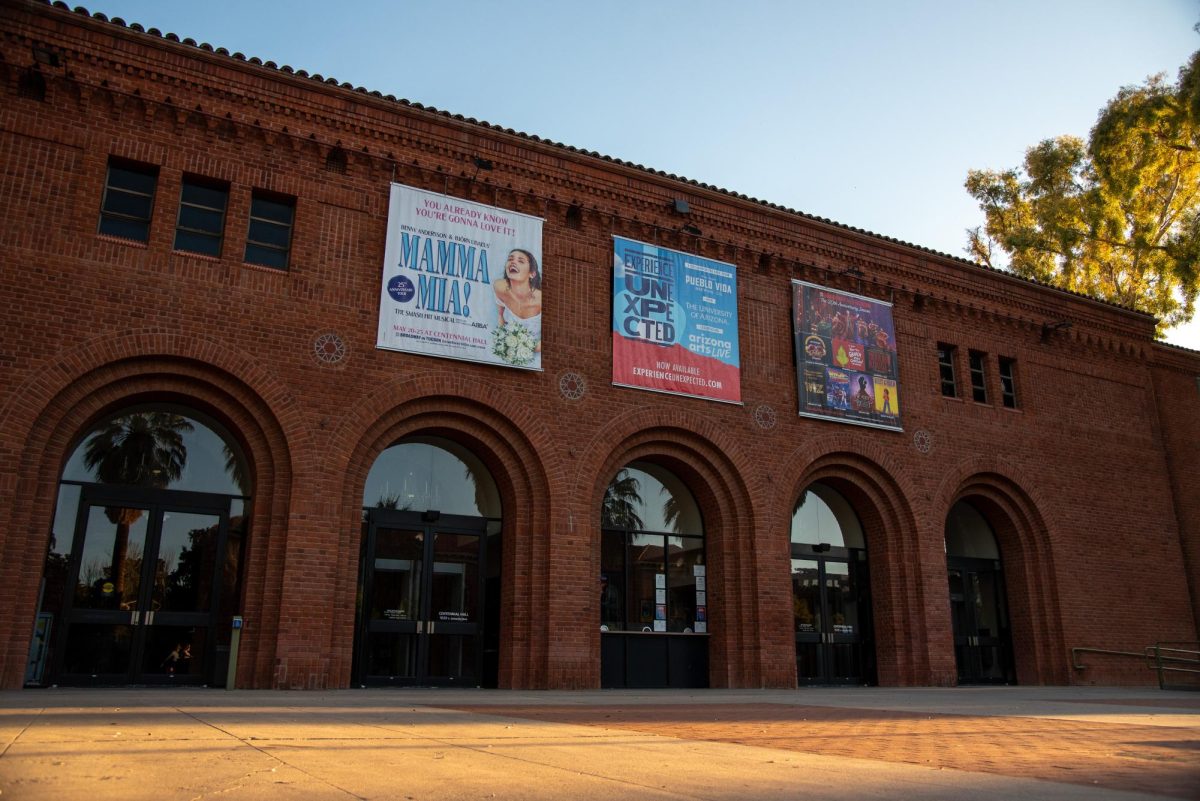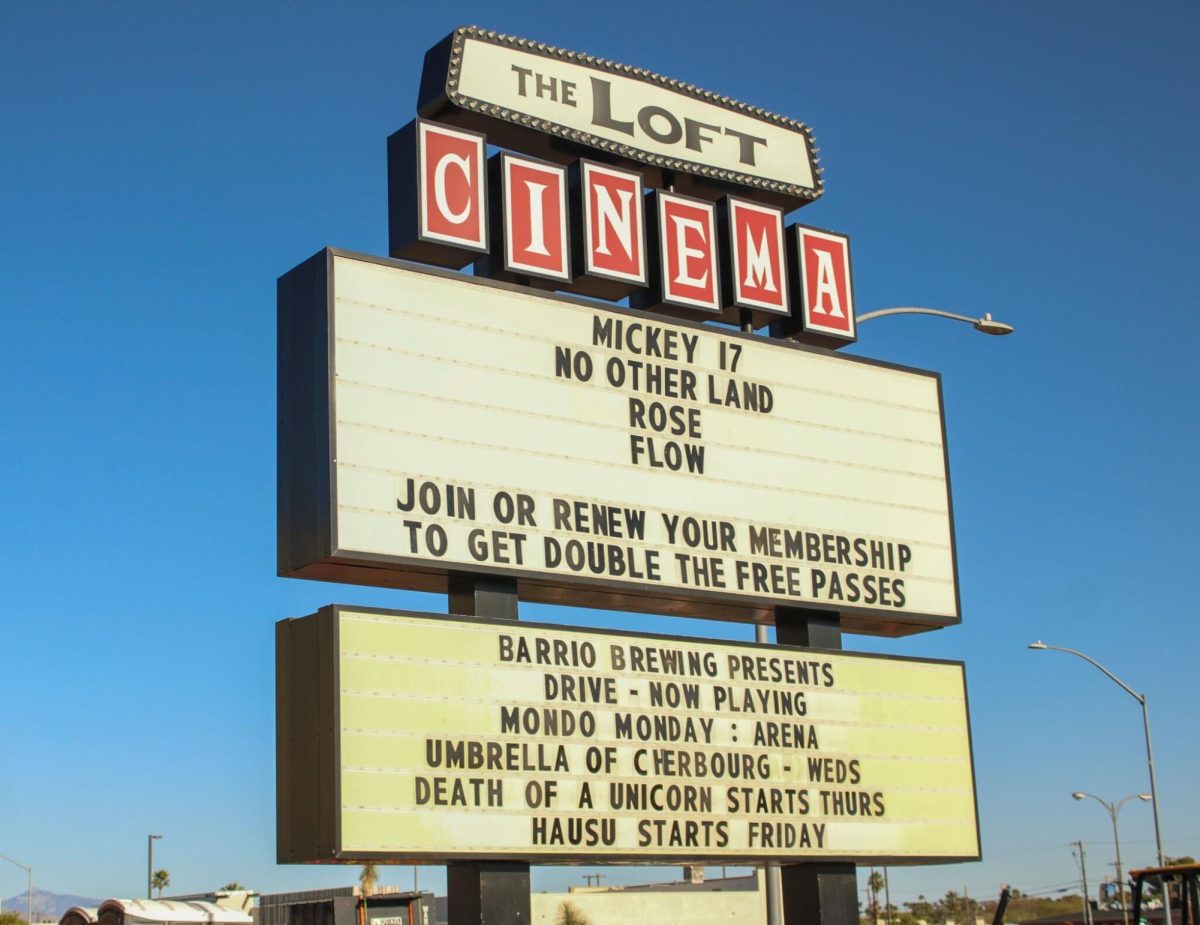The Tucson Festival of Books was canceled due to authors pulling out last minute amid concerns over COVID-19. However, the stories are published online for the journalist that wish to use these as clips.
Norma Elia Cantú
When Norma Elia Cantú was a child, poems leapt from her imaginative mind, inspired by the folklore tales her grandmother used to tell her. Today, she is an award-winning author, the president of the American Folklore Society and a professor of folklore, creative writing and Latinx culture at Trinity University in San Antonio.
“I just finished ‘Ordinary Girls’ by Jaquira Díaz, a memoir,” Cantú said. “I also try to read at least one book in Spanish per month. I’m always reading more than one book at one time, because I write more than one book at a time.”
Raised in Laredo, Texas, Cantú said she was reared by the borderlands and was greatly influenced by her family and by reading many books as a child.
“The women in my family were all great storytellers and very strong women,” Cantú said. “And my dad, who loved to tell jokes, was a very traditional Mexican man.”
Cantú has published scholarly essays, anthologies, poetry, fiction and has a Ph.D. in English from the University of Nebraska, Lincoln. She loves memoirs, and her writing style is one which she called “creative autobioethnography.”
“The writing combines ethnographic work with the creativity of fictionalized novels and poems,” Cantú said.
The Tucson Festival of Books website lists Cantú’s most recent books as “Meditación Fronteriza: Poems of Love, Life and Labor” and “Cabañuelas: A Novel,” both published in 2019.
“I haven’t read from my two new books in Arizona yet, so the Tucson book festival will be my first time,” Cantú said. “I’ll also go back to [Arizona State University] and read there in the fall sometime.”
Cantu said she values the need to encourage literacy and reading.
“It is so necessary in our current political climate that we read widely and learn from what we read,” Cantú said. “The book festival, all book festivals, have been serving a crucial community need. We need to join together, read each other’s books and celebrate writing and reading.”
Jared Diamond
A Pulitzer Prize-winning professor of geology at the University of California, Los Angeles, Jared Diamond is a multi-professions writer with an eclectic collection of academic interests.
According to his website, Diamond’s scientific career began in physiology and later grew to include evolutionary biology and biogeography. He also has a proficiency for languages, with expertise in Greek, Latin and Italian.
Diamond went to Harvard College for laboratory science research. In 1958, Diamond went to Cambridge University, “when the reality of WWII was still fresh” as he wrote in his personal about page, to get his Ph.D. in physiology. Diamond returned to the U.S. in 1962 to pursue his career in laboratory physiology research, first at Harvard Medical School and then at UCLA Medical School.
According to his website, books Diamond has written or contributed to include “The World until Yesterday,” “Why Is Sex Fun?,” “The Third Chimpanzee,” “Collapse” and “Natural Experiments of History.” In 1964, an eye-opening trip to New Guinea resulted in his acclaimed book “Guns, Germs, and Steel,” which won a Pulitzer Prize.
“New Guinea changed my life. It’s a very different place. It was an eye-opener that had a big effect on my outlook,” Diamond wrote in his about page.
Besides Diamond’s Pulitzer, the Tucson Festival of Books list of authors cites the U.S. National Medal of Science and the Tyler Prize for Environmental Science in his repertoire of honors. Diamond was also elected to the U.S. National Academy of Sciences and is a director of World Wildlife Fund/U.S. and Conservation International.
Louise Erdrich
Louise Erdrich is a renowned Native American writer, born to an American father and mother of Ojibwe descent, according to the Center for Great Plains Studies. Her work focuses primarily on Native American lives and stories. Influenced by traditional Ojibwe storytelling and other aspects of her heritage, Erdrich has achieved literary and commercial success.
Erdrich’s 2008 novel, The Plague of Doves, explores the dynamic of Ojibwe people living next to a primarily white town of Pluto, N.D., generations after the unsolved murder of a white farming family. Plague of Doves became a success and Erdrich became a Pulitzer Prize Finalist, according to The Paris Review. In addition to her 15 novels and additional volumes of poetry, Erdrich has written children’s books as well as a memoir, according to the Harper Collins website.
Mario Garcia
Mario Garcia is an author and distinguished professor. According to Garcia, he is a native of El Paso, Texas.
Garcia received both his bachelor’s and master’s degrees in history from the University of Texas at El Paso. He also received his Ph.D. in Chicano history from the University of California in San Diego. He taught history and American studies at Yale University and was their ethnic director.
Garcia is currently a distinguished professor of Chicano studies and history at the University of California Santa Barbara. He mentioned that he has been teaching at UC Santa Barbara for over four decades.
Garcia said he is a Chicano historian and he has published over 20 books about Chicano history. He said much of his work focuses on leadership in Chicano history.
“I am interested in how Chicano make history rather than just being victims of history,” Garcia said in an email.
He has received a number of awards for his work, such as the Guggenheim Fellowship and the 2016 Stetson Kennedy Vox Populi Award “for outstanding achievement in using oral history to create a more humane and just world,” as Garcia wrote in an email.
He said he was very pleased to be back to “one of the most outstanding book festivals in the country which significantly features Latino writers.”
Garcia is promoting his book titled “Literature as History,” which was published by the University of Arizona Press. This book was the first of two books that have been published by the UAPress and he has a third one about the Chicano movement to be published by them next year. He said that he is “privileged” to be an author for UAPress.
Saeed Jones
Former BuzzFeed LGBT editor, culture editor and morning show co-host Saeed Jones has written two books: the 2019 memoir “How We Fight For Our Lives” and “Prelude to Bruise,” a collection of poetry published in 2014, as listed by the Poetry Foundation.
Jones received degrees from Rutgers University — Newark and Western Kentucky University. He has received multiple awards for his writing, according to the Tucson Festival of Books website, including a PEN/Joyce Osterweil Award, the Stonewall Book Award and National Book Critics Circle Award.
In an interview with MELO, Jones described “Prelude to Bruise” as a “journey” through some of his experiences as a gay black man growing up in the American South, but not a replication of them. The main character, Boy, represents many people, not just Jones.
Similarly, Jones told NPR that the title of his memoir uses the pronoun “we” for a reason. As a product of that story, Jones’ writing can start conversations with people, no matter how similar or different their lives may be.
Mia Sosa
Mia Sosa is a contemporary romance writer from New York, who went to the University of Pennsylvania to get her bachelor’s degree in communications, a place where she met her husband. Later, she went to Yale Law School to get her law degree, according to the Tucson Festival of Books Author Schedule website. During college, Sosa was a romance reader, which inspires her to write romance books in a unique way.
For 10 years Sosa worked in the nation’s capital, where she practiced First Amendment and media law. Nowadays, Sosa is a full-time author that focuses her stories on funny, flirty and moderately dirty contemporary romances that celebrate our multicultural world. By email, Sosa described herself as a joyful person that is better when she gives or receives joy.
“The world can be a sad and unhappy place at times, and I like to counteract that negative energy with positivity,” Sosa said in an email.
Now that Sosa has plenty of time, she likes to write stories about imperfect characters finding their perfect match. She confessed on her website that she wears sweatpants and watches reality television as research for her stories.
In 2015, Sosa was a Writers of America Golden Heart finalist. Her book “Unbuttoning the CEO” was included in Book Riot’s list of 100 Must-Read Romantic Comedies, according to her website.
Sosa is open to talking to readers; she loves interacting with them, especially on social media. Now that the Tucson Festival of Books is coming up, Sosa is happy to share her love for romance books.
“I’m most excited about sharing my love of the romance genre with readers attending the festival,” Sosa said in an email. “Many people have never read a romance, and I love telling them about the amazing stories that the genre has to offer.”
Luis Alberto Urrea
Luis Alberto Urrea was born to a Mexican father and American mother, and Urrea writes with his dual-culture experience in mind, according to his website. Urrea writes nonfiction, fiction, essays, poetry and short stories.
“The House of Broken Angels” is his most recent work focusing on life, mortality and family. Urrea became a Pulitzer Prize finalist in 2005 for “The Devil’s Highway,” a recounting of 26 Mexican men who attempted to cross one of the most dangerous parts of the Mexican-American border.
Urrea is also a member of the Latino Literature Hall of Fame in recognition of his achievements, according to his website. In addition to his extensive literary achievements, Urrea has attended every year of the Tucson Festival of Books since its beginning in 2009, according to his profile on the festival’s website.
Sylvia Zéleny
Sylvia Zéleny is a bilingual novelist and short story writer born in Hermosillo, Sonora, Mexico.
Zéleny has her Bachelor of Arts from Universidad de Sonora, her master’s degree in humanities from Instituto Tecnológico y de Estudios Superiores de Monterrey and another master’s degree in bilingual creative writing from the University of Texas at El Paso.
Zéleny said she has been teaching her entire life. She has taught literature and composition courses, but for the past three years has been focusing on creative writing, fiction and women’s literature.
In her writing, Zéleny intensely focuses on current affairs, bilingualism, immigration, gender violence and what she described as “the effects of social changes” in family.
“I am interested in using the point of view of younger diverse voices to build human condition in this climate of fear and threat that we constantly live in,” Zéleny said in an email.
Zéleny has published short stories and novels in Mexico, a young adult LGBTQ series and a young adult novel both in the United States. Her first book was published in 1999 and her latest book was published this year. She has 10 published works in total.
Zéleny said this would have been her first time featured at the Tucson Festival of Books. She said that she has heard about the festival previously and that she admires how it brings together people from the southwest and from all around the country.
“For someone who grew up in the Sonora/Arizona border, being part of this grand conversation at the Tucson Festival of Books is like a dream come true,” Zéleny said in an email. “It brings the possibility of interacting with both authors and readers with much in common.”
In addition to her writing, Zéleny is the founder of CasaOctavia, which she said is a “small residency program for women and LGBTQI authors” in El Paso, Texas.
“We often forget about the restorative element of fiction and nonfiction. We often forget that it is through stories that we are raised and educated,” Zéleny said via email. “In today’s political climate we need authors, publishers, readers to remind us that books can bring us together.”
For more information on these authors and many, many more presenting at this year’s Tucson Festival of Books, visit the website.
Follow the Daily Wildcat on Twitter




















